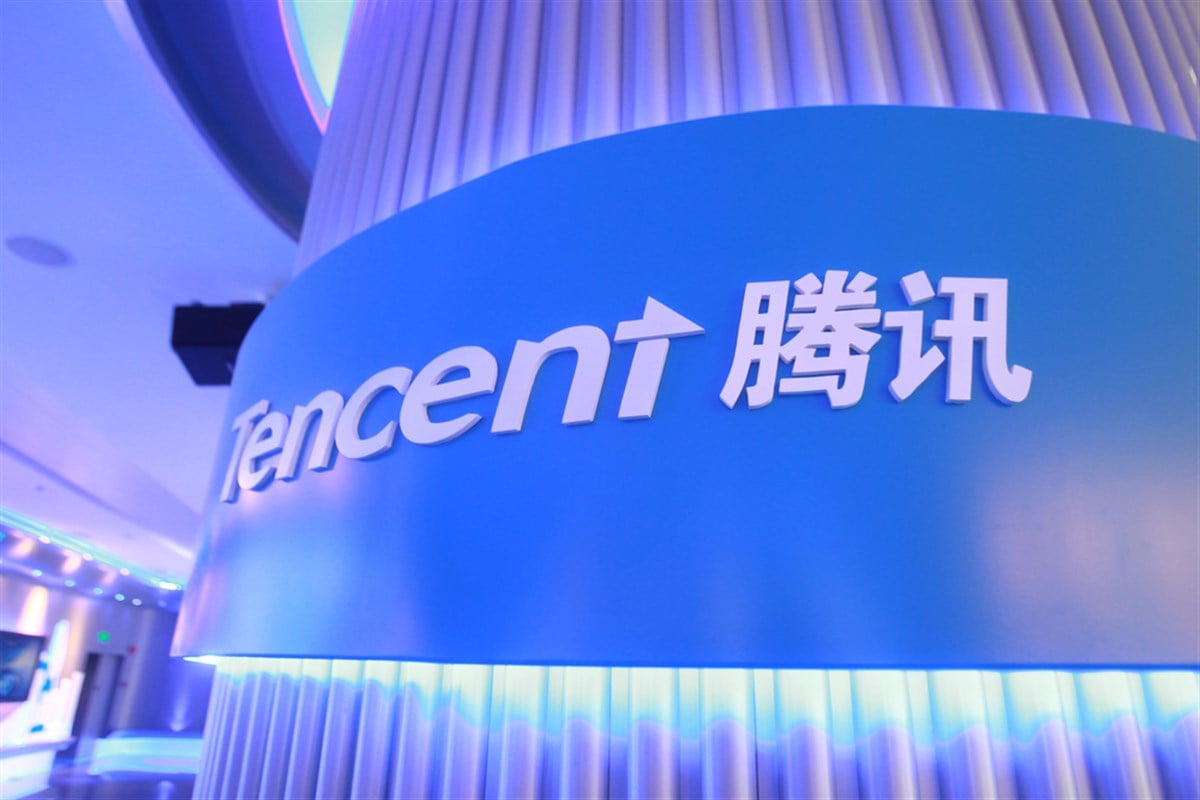
The United States and China have been in an ongoing conflict over technology. Every week seems to bring a new ban on what China can and cannot use in terms of chip and semiconductor technology. In an attempt to control potential national security risks and China's technological advancements, Nvidia Co. (NASDAQ: NVDA) has been asked to stay out of the Chinese market.
This leaves a potential $7 billion gap to be filled by other players in the nation. Companies like Huawei are starting to take on the responsibility of bringing China's artificial intelligence capabilities up to international standards. Still, the more prominent players like Tencent Holdings Ltd. (OTCMKTS: TCEHY) could take most of the weight.
At least, that’s what Wall Street thinks today, as investors soon find out what the expectations are for this stock. Price targets and earnings per share (EPS) projections suggest Tencent could come out ahead of peers like Alibaba Group (NYSE: BABA).
China Is Not Alone
After hitting a five-year low, the CSI 300 index (China's S&P 500) attracted some U.S. investors to look for opportunities in Chinese stocks. Among these, Ray Dalio and Michael Burry have been buying up some more typical names.
As a macro investor, Dalio took the exchange-traded fund (ETF) route in the iShares MSCI China ETF (NASDAQ: MCHI). This ETF offers investors an annual dividend yield of 3.6%, higher than the yields on Chinese 10-year government bonds of 2.3%.
Historically, whenever stocks pay a higher yield than the ‘risk-free’ government bonds, investors worldwide come flocking in to buy up potentially undervalued equities. This is the case today, as Burry found his value proposition in Alibaba and JD.com Inc. (NASDAQ: JD).
Being left to its own devices, Asia’s powerhouse must now find ways to keep up with the A.I. race. And if Nvidia’s chips can’t fill it, then it looks like a 469% upside in Tencent’s $210 consensus price target might do it.
Other Avenues Aren't the Same
Investors who think investing in Chinese stocks is too risky might have to leave some money on the table. Micron Technology Inc. (NASDAQ: MU) is a U.S. name with some high exposure to the Chinese chip market, but the market doesn’t think it has what Tencent can bring to the table.
Analysts at Bank of America Co. (NYSE: BAC) think Micron stock could go as high as $120 a share, which is barely a single-digit upside from today’s prices. Investors can also look at this by investing in Alibaba. However, that stock has close ties to Huawei, which could pose a threat to those who invest from the U.S.
Trading at 74% of its 52-week high price, Tencent poses a potentially better opportunity than Micron stock, which trades at 96% of its 52-week high. More than that, forward P/E ratios show Tencent trading at a 38% discount to Micron. A 10.4x forward P/E versus a 16.8x valuation is only the beginning.
On a price-to-sales (P/S) basis, Tencent is the clear discount again. A 3.8x multiple falls 41% below Micron’s 6.4x, implying the market has yet to realize the value in Tencent’s potential revenue increases from cloud computing and A.I. capabilities.
In fact, Tencent’s Hunyuan LLM A.I. model is reportedly now among the world’s best. As China seeks to close its technological gap with the U.S., Tencent could become the go-to platform for building this much-needed infrastructure.
Tencent’s Ceiling is Much Higher
The stock appears cheap enough for management to buy it in bulk. Tencent announced a $12.8 billion share buyback program, representing up to 4% of the company’s market capitalization.
Typically, a vote of confidence and share buybacks from management can be taken as a two-way message. Implying that the stock is cheap and expected to rally shortly, Tencent’s management understands the opportunity to fill Nvidia’s gap.
The stock’s all-time high of $97 a share was touched when the U.S. Federal Reserve (the Fed) lowered interest rates in 2021. If history is to repeat itself, a potential new round of interest rate cuts could again send Tencent to its former glory.
As the technology stock mania has yet to have a contagion effect in overseas markets, contrarian investors can find double or even triple-digit upside by siding with China’s top pick for an A.I. revolution.
